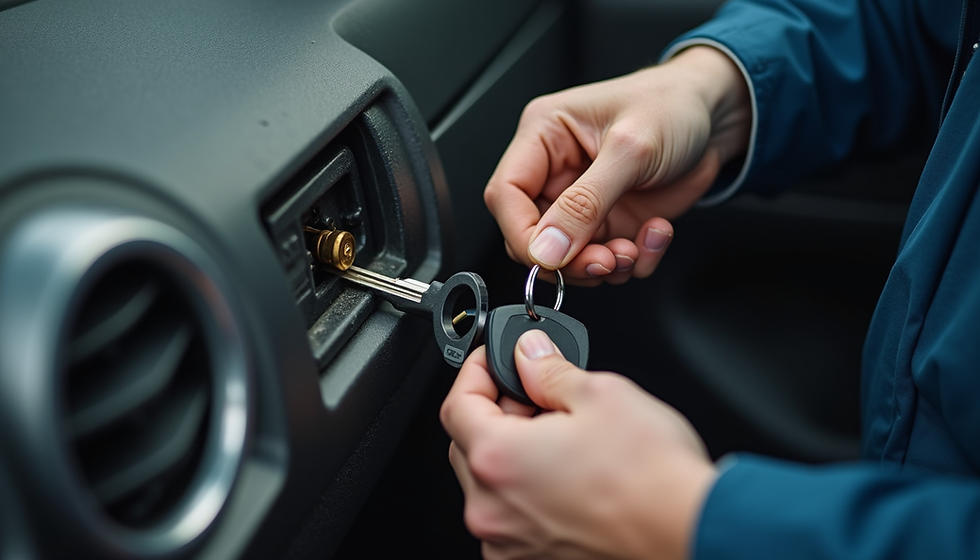Understanding the Rise of Locksmith Scammers and How to Protect Yourself
- Jul 18, 2025
- 3 min read
Locksmith scammers have become a significant issue in recent years, causing frustration and financial loss for countless individuals. In fast-changing cities, dishonest individuals exploit vulnerable situations more than ever. This blog post highlights the rise of locksmith scams, the techniques used by scammers, and practical advice on how to protect yourself from becoming a victim.
The Mechanisms of Locksmith Scams
Locksmith scams thrive on emergencies. When individuals find themselves locked out or urgently needing a locksmith, they often make hasty decisions due to stress. Scammers exploit this vulnerability in multiple ways.
One common tactic is advertising very low prices. For example, a scammer might advertise a lockout service for just $15. Yet, when they arrive, the costs can inflate dramatically. Imagine receiving a bill of $200 or more after unexpected fees are added for miles traveled, service calls, or worse, replacing your lock with a more expensive option than initially promised.
Some scams are subtle, making them harder to spot. Consider the case of a "locksmith" who shows up without the right tools. They may end up damaging your lock, leaving you in a worse situation than before. Not only do you pay a hefty bill, but your lock could become dysfunctional, requiring even more costly repairs.
Common Red Flags to Watch Out For
It's crucial to spot a locksmith scam before it becomes a big problem. Here are key red flags to consider:
Unclear Pricing: If a locksmith fails to give a clear estimate over the phone, this could be a warning sign. Legitimate businesses always provide transparent pricing.
No Physical Address: Reputable locksmiths have a valid physical address on their website or ads. A lack of this information often indicates a scam.
Limited Website Information: Genuine locksmiths typically have detailed websites that explain their services, experience, and contact methods. A poorly designed site or minimal information is a warning flag.
High-Pressure Tactics: Be wary of locksmiths who pressure you into quick decisions or claim a deal is only available for a limited time.
Suspicious Vehicle: Many trustworthy locksmiths drive marked vehicles with their business name clearly displayed. If the locksmith arrives in an unmarked or suspicious vehicle, you might be dealing with someone untrustworthy.
How to Find a Reliable Locksmith
To prevent scams, it's essential to find a reliable locksmith ahead of time. Here’s how to do it:
Ask for Recommendations: Seek suggestions from friends, family, or neighbors. Anecdotal experiences can lead you to reputable professionals.
Research Local Reviews: Use platforms like Google or Yelp to check customer reviews. According to a recent survey, 84% of people trust online reviews as much as personal recommendations.
Check Certifications and Affiliations: Look for locksmiths affiliated with professional organizations. Membership often means they commit to ethical standards, increasing their credibility.
Get Multiple Quotes: Contact a few locksmiths before you need one to gather estimates. This can help you recognize an unreasonable price when you actually need assistance.
What to Do If You’ve Been Scammed
If you suspect that you have been scammed, take these steps right away:
Document Everything: Keep details of conversations, transactions, and any services performed. Documenting these can support your case if you pursue a complaint.
Contact Authorities: Report the scam to local law enforcement. You should also file complaints with the Better Business Bureau and your state's Attorney General's office.
Dispute Charges: If unfairly charged, contact your bank or credit card company to dispute the transaction. Many companies will help you recover your funds.
Spread the Word: Share your experience with friends and on social media to warn others in your community. Awareness is a key tool in preventing future scams.
Taking Action for Safety and Security
The rise of locksmith scammers is alarming and impacts many across our communities. By understanding common tactics, identifying warning signs, and finding reliable locksmith services proactively, you can significantly lower your chances of being targeted.
Your security is essential, and working with the right locksmith should come with confidence, not uncertainty. Take these precautionary steps to protect yourself and your community from locksmith scams.






Comments